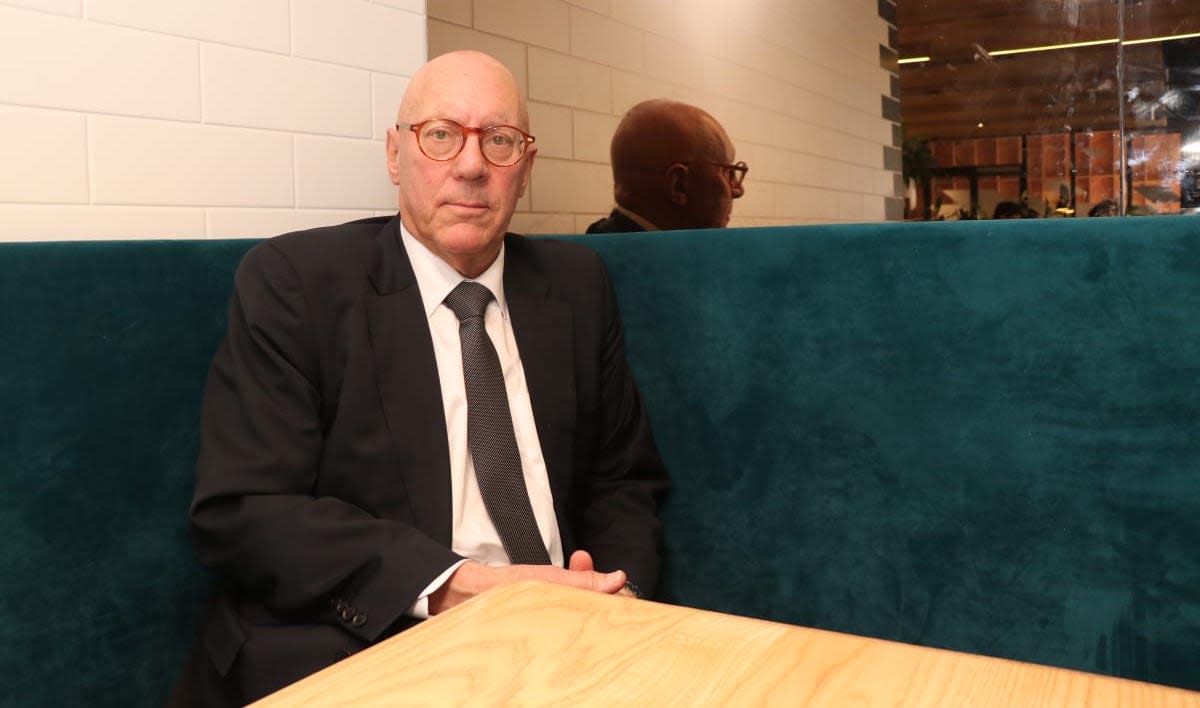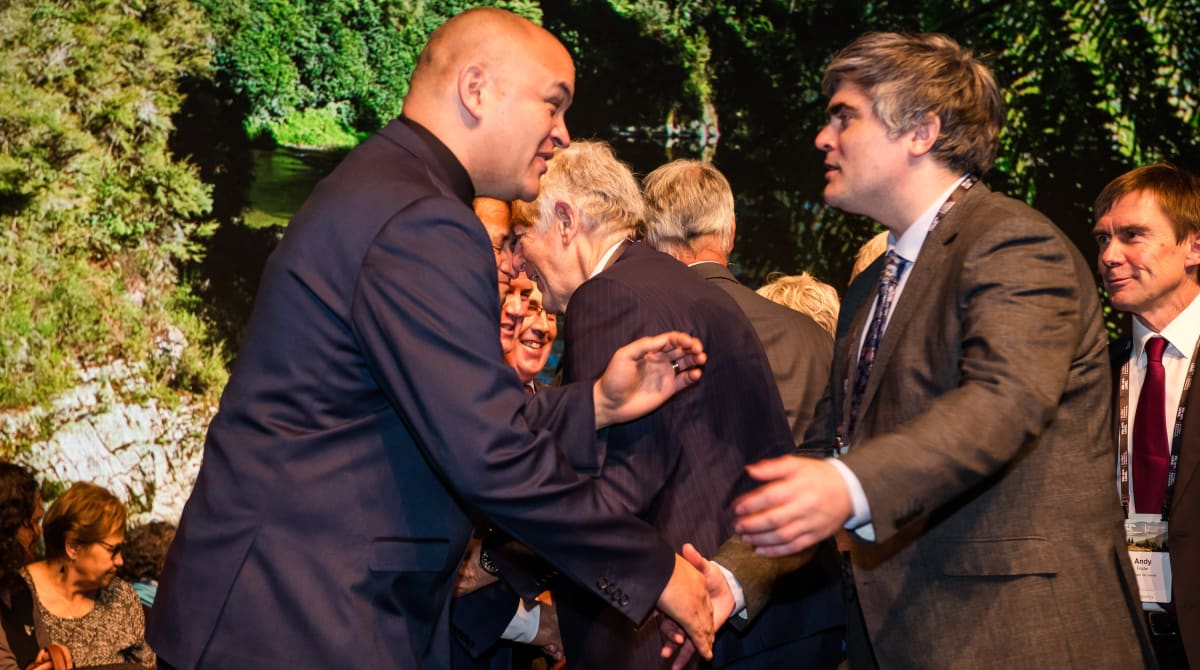
A Newsroom survey of local election contenders reveals unexpected support to expand co-governance with iwi Māori – and already, some councils are embracing those principles by reversing their Three Waters positions
With the South Island’s two biggest cities both pulling out of the group spearheading Three Waters opposition to make peace with local iwi, the co-governance horse could be said to have bolted.
On March 29, Dunedin exited Communities 4 Local Democracy and Christchurch followed suit on September 14, both councils electing to leave by one-vote margins.
Dunedin Mayor Aaron Hawkins and Christchurch’s Lianne Dalziel both said their respective motions to quit the Communities 4 Local Democracy grouping were to restore relations with iwi, whom they’d neglected to consult before joining.
A third council, Queenstown Lakes, has also quit, though according to outgoing mayor Jim Boult, the reason was slightly different.
“Our response was not due to pushback from iwi but was simply because we didn’t like some of the statements coming from Communities 4 Local Democracy. It didn’t sit right with us.”
In regard to co-governance – and emphasising what he has to say is his personal view – Boult thinks there is “an intrinsic value that iwi put on water and it is useful to have that perspective brought to the table”.
Speaking while en route to a meeting with Southland iwi in Invercargill, he says, “We have a very warm relationship with iwi and Three Waters is just one part of that relationship.”
He can see a future Queenstown Lakes council extending collaboration with iwi particularly over environmental concerns.
According to a Newsroom Pro survey of local-election candidates, Boult, who is in his 70s, is in the demographic that has the greatest suspicion of co-governance. But he doesn’t share that scepticism.

“I am not concerned. I think that [warinesss] is reflective of the way society has been and perhaps older folk are more comfortable with the way things were.
“We live in a constantly changing world and perhaps younger people are more open to that change.”
Opportunity knocks
Indeed, Newsroom’s survey, to which 600 local-election hopefuls (two-fifths of all candidates) responded, shows female election candidates aged under 45 are the most amenable to co-governance.
Overall, 29 percent of candidates would vote on council for more co-governance with Māori; another 32 percent would maintain existing co-governance arrangements (like those over Auckland's volcanic cones). Only 14 percent would vote to reduce the extent of local co-governance.
What is it that younger females are embracing but gives some older blokes the willies?
According to Jacinta Ruru, a University of Otago law professor and contributor to He Puapua, a government report on how to comply with the United Nations Declaration on the Rights of Indigenous Peoples, the conversation is “an amazing opportunity”.

Speaking on TVNZ’s Q+A in April, Ruru said co-governance, as encapsulated in He Puapua, would “more formally enable a partnership between Māori and everyone else in this country”.
It doesn’t imply different rights for Māori and Pakeha, as is often claimed, Ruru says, but promises enhanced opportunities for Māori, Pakeha, Pacific and Asian peoples to contribute to the country based on a commitment to the Treaty of Waitangi.
She rejects the oft-heard criticism that co-governance is undemocratic.
“I fundamentally do think it is democratic. Democracy is about valuing the people in this country, about valuing who we are as New Zealanders and Māori are a significant and important part of this identity and who we are as a country.”
'Māori grossly under-represented'
That chimes with Mandy Mayhem-Bullock, a candidate for the Dunedin mayoralty and council. Although not in the under-45 age group – she is 49 – the Waikouaiti Coast Community Board member is a big backer of co-governance.
“I think Māori are grossly underrepresented in all political realms,” she says. “Past their use-by date older white males”, on the other hand, are the stereotype of local-body politicians.

Where she sees co-governance being put to good effect is on a Local Government NZ advisory committee to which she belongs, which includes a representative from Te Maruata, a Māori sub-committee of Local Government NZ’s national council.
“At Local Government NZ level we are very much into honouring Te Tiriti o Waitangi, and although Dunedin doesn’t have Māori wards, I see them being really vital in Māori having a voice at the table.”
If Dunedin introduces Māori wards, a recommendation of He Puapua, the government is in the process of making their establishment easier.
Mayhem-Bullock says on the handful of occasions co-governance has come up during campaigning, it has been a polarising issue.
“Whenever it’s been mentioned it has segued into a Three Waters argument.”
Diversity lacking
Reinforcing Boult’s theory that pro-co-governance is age-related, Jayden Cromb, who’s in his 20s and of Waikato iwi, has none of the wariness of older males.
Cromb, who lives in Alexandra and is running for Central Otago District Council and Vincent Community Board, says if he has any issue with co-governance it’s with the term itself.
“I think it’s very important and something we should talk about but I really struggle with the term because it has been painted in such a bad light.

“Misinformation about co-governance has resulted in a lot of fear and misunderstanding.”
As the youngest by a decade of the council’s Vincent ward candidates, he describes being singled out for “the co-governance question” at a Grey Power election event, the asker of which then sat back with arms folded.
“He had a smug look on his face as though he’d caught me out on something, but as I explained to him and that group, co-governance is about partnership - it’s not a scary thing.
“It’s about fulfilling our obligations under the Treaty but also our moral obligations to Māori and the community as a whole.”
If co-governance is a foreign concept for some of the people Cromb encounters, perhaps it’s not surprising in a part of the country as lacking in diversity as Central Otago.
Whereas in the 2018 census 70 percent of the total New Zealand population identified as European and 17 percent as Māori, Central Otago’s figures were 92 percent and 8 percent respectively.
Cromb’s perception is that in his lifetime the district has become more diverse, which is borne out by a small uptick in the Māori population between the 2013 and 2018 censuses.

But he says that’s not reflected in the make up of the local council, which discourages many people from engaging with local government and underpins his diversity campaign platform.
“It was always going to be an uphill battle and like everyone else I want to win. If I lose, but in three years we have more diversity among people running or on the council, then that’s a victory.”
He’ll be running again regardless and will continue to push co-governance.
“Definitely – I’m only 27 and have plenty of years left in me.”
Made with the support of the Public Interest Journalism Fund








